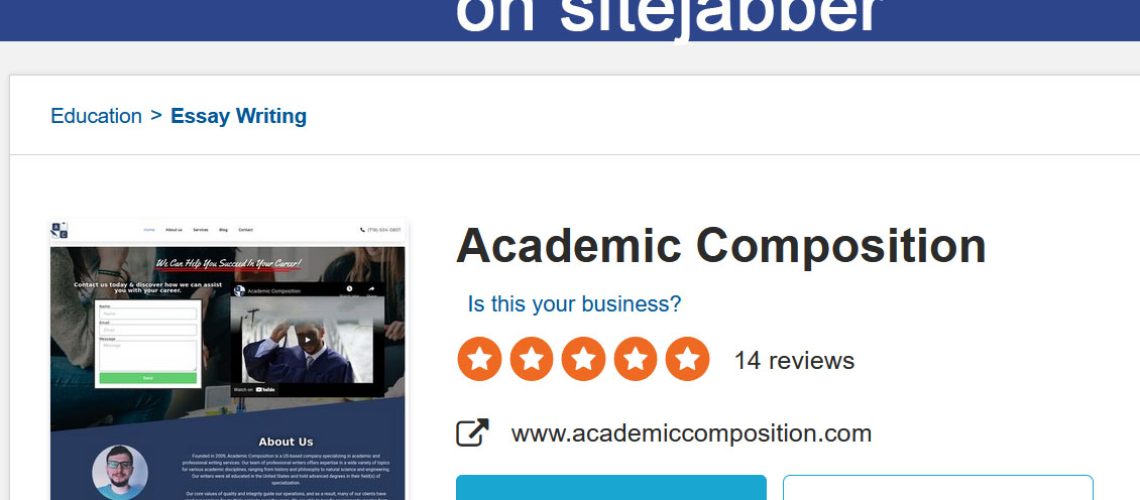In the digital age of education, where online classes have become the norm, the significance of discussion posts and replies has taken on new dimensions. These seemingly innocuous assignments have evolved into essential tools for both students and professors. They are not just platforms for academic discourse but also critical instruments for tracking attendance, participation, and engagement. In this comprehensive guide, we’ll delve into the art of crafting effective discussion posts and replies, ensuring you maximize your success with the combined power of Academic Composition (www.academiccomposition.com) and Sophia.org.
The Digital Education Landscape: Why Discussion Posts Matter More Than Ever
As the world adapted to the challenges posed by the pandemic, the realm of education underwent a remarkable transformation. Traditional classrooms gave way to virtual ones, and the significance of discussion posts soared. In today’s digital education ecosystem, discussion posts serve multiple pivotal purposes:
- Attendance and Participation Tracking: Discussion posts help professors monitor student attendance and participation. Active engagement through posts and replies is often a key criterion for assessing a student’s commitment to the course.
- Demonstrating Comprehension: Effective discussion posts reveal your understanding of the course materials, including readings, lectures, and assignments. They showcase your grasp of the subject matter and your ability to apply it.
- Enhanced Learning: Engaging in thoughtful discussions with peers not only fosters a deeper understanding of the subject but also offers diverse perspectives, enriching your learning experience.
- Collaborative Learning: Discussion posts encourage collaboration and peer interaction. They facilitate the exchange of ideas, clarifications, and constructive feedback among students.
- Communication Skills: Crafting well-structured posts and replies hones your written communication skills—a vital asset in today’s digital workplace.
Mastering Discussion Posts: A Step-by-Step Guide
Now that we understand the pivotal role of discussion posts, let’s explore how to excel in crafting them:
1. Stay on Topic:
- Begin by thoroughly understanding the topic or question posed by your professor.
- Ensure your post remains focused on addressing the assigned prompt or question.
- Avoid veering off into unrelated tangents, as this can dilute the impact of your response.
2. Reference Assigned Readings:
- Demonstrate your engagement with the course materials by referencing readings, lectures, or relevant assignments.
- Cite specific passages, theories, or concepts from these sources to bolster your points.
3. Answer the Professor’s Question:
- Carefully analyze the professor’s question or prompt.
- Craft a response that directly addresses the query, offering a well-reasoned perspective or solution.
4. Construct a Thoughtful Response:
- Organize your thoughts logically, beginning with a clear introduction and followed by well-structured paragraphs.
- Support your arguments with evidence, examples, or real-life applications of course content.
5. Interaction with Peers:
- Engage with your peers by responding to their posts.
- Offer constructive feedback, ask clarifying questions, or present alternative viewpoints in a respectful manner.
6. Proofread and Edit:
- Before submitting your post, proofread it meticulously.
- Correct any grammatical errors, ensure clarity, and refine your language for maximum impact.
The Art of Crafting Replies: Enhancing Your Participation
In the world of digital education, participation isn’t confined to just posting your initial thoughts. Engaging in meaningful replies amplifies your contribution and interaction:
1. Acknowledge Peers:
- Begin your reply by acknowledging the original poster by name.
- Express appreciation for their insights or perspectives.
2. Expand on Ideas:
- If you agree with a peer’s viewpoint, elaborate on it by offering additional supporting evidence or examples.
- If you disagree, respectfully present your counterargument with clear reasons.
3. Encourage Discussion:
- Foster discussion by posing follow-up questions or seeking clarifications from your peers.
- Encourage them to delve deeper into their thoughts.
4. Constructive Feedback:
- If you offer criticism, ensure it is constructive and respectful.
- Suggest improvements or alternative viewpoints while maintaining a collegial tone.
5. Stay Polite and Professional:
- Maintain a respectful and professional tone in all your interactions.
- Remember, your posts and replies reflect your online persona and academic demeanor.
The Academic Composition and Sophia.org Advantage
Now that you have the tools to excel in discussion posts and replies, let’s amplify your advantage with the combined power of Academic Composition and Sophia.org. Academic Composition’s expert team is here to offer guidance, support, and even completion of assignments, ensuring you shine in every aspect of your online education journey. Sophia.org, on the other hand, provides flexible and affordable courses that can bolster your understanding of course materials, setting the stage for exceptional discussion contributions.
Seize this opportunity to thrive in the digital education landscape. Craft your discussion posts and replies with precision, engage with your peers, and let your active participation shine. With Academic Composition and Sophia.org by your side, your success in online education is within reach.
Remember, discussion posts may seem trivial, but in today’s educational landscape, they are the key to showcasing your commitment, comprehension, and collaboration skills. Embrace them, and let your digital education journey flourish.

